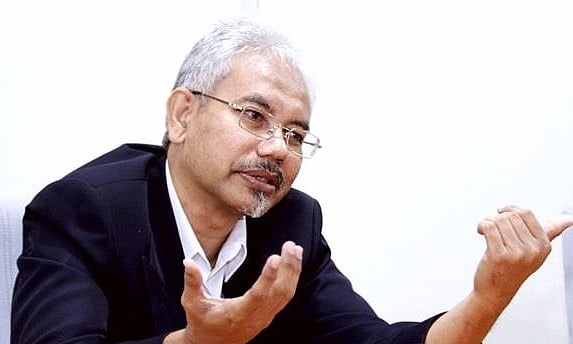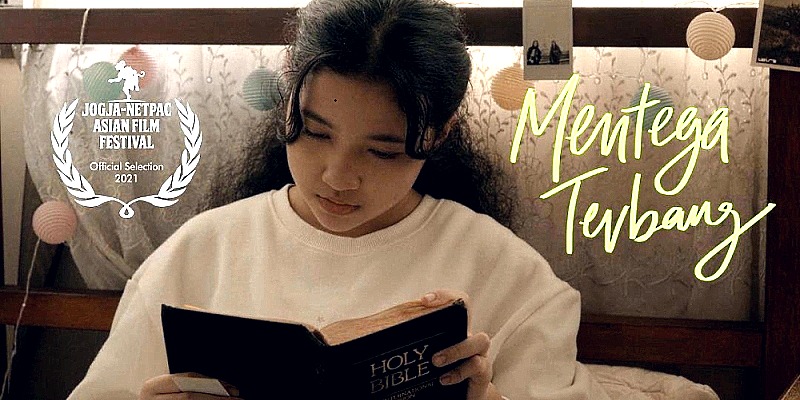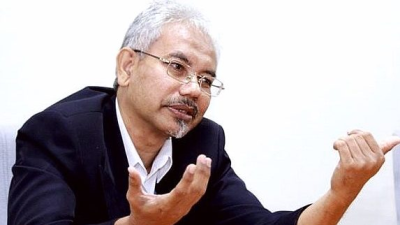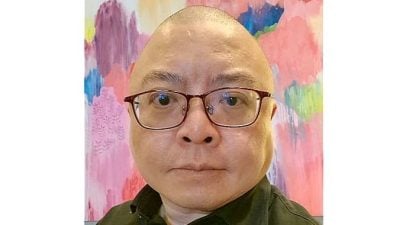
As I pen this article, I read with sadness that the actors and producers of the wonderful film “Mentega Terbang” are is being hauled to the police station for questioning.
It is really ironic that a well-known cleric and leader of a political party spouting incendiary lies and slanders is still scot-free dividing this nation into his own brand of Islam against other Muslims and good Malaysians.
I wish to pay tribute to the actors and producers of the film for their courage and sense of Islamic dynamism as well as strong patriotism of the Malaysia spirit in producing this movie.
If they had screened it to me before making the film public, I would have told them to brace themselves not for an Oscar but mountains of police reports and also ignorant statements by narrow minded-Muslims in the form of ministers, officials and of course netizens who do not know even their own religion but want to threaten because they think that the Prophet Muhammad wants them to be both brutal and uneducated.
For these Muslims, they only know one small Islam and they think that is enough to shoot down not only 1,400 years of Islamic scholarship and dynamism but also to disregard the totality of human civilization concerning art and the concept of the afterlife.
The movie’s basic storyline centers on the a sixteen-year-old Malay girl having to grapple with her dying mother.
Her parents, who are portrayed as devout Muslims, possess the wider sense of spirituality to encourage their daughter to search for a meaningful spirituality by comparing people of different faiths.
The teenager is portrayed as a cultural Muslim following her parents but with a strong curiosity to find out what is the truth about life after death so that she can console her mother, father and herself about the eventual death of a loved one.
We could say then that the two main ideas are about the concept of life after death and the idea of diversity of faiths.
Although the idea of life after death is a philosophical construct that does not draw too much attention, the acceptance of the diversity of faith teachings draw serious criticism from those who view the world from only one lens.
As a Muslim and as an academic, I can attest that the movie does not violate any issue of aqidah at all, unless one watches only snippets of the movie and internet garbage of opinions that have no value whatsoever.
For Malays born in Malaysia and have inherited the religion of Islam as a culture, thinking and reading about other religions, even when living next door to others of different faiths, is unthinkable.
Why unthinkable? We always say that there is no force in Islam. But of course, that is a joke because everything about Islam in Malaysia is sheer force from ignorance and narrow-mindedness.
A country that must be told ever and forever what it must believe, what it must accept and what it must never ask is a poor country in desperate need of a soul.
The first aspect that I would like to pay tribute to about the movie is its sense of Malaysia-ness.
The movie introduces the character of a Christian neighbor, Esther, and a Hindu teen named Suresh. The walk through Brickfields admist the temples, churches and mosques sums up the strength of this country in its diversity and supposedly tolerant behavior of the citizens.
I can understand how some Muslims and Malays feel uncomfortable when Islam is being treated as “equal” to others by the movie characters, but these Muslims do not understand that spirituality crosses all tradition-bound religions.
The higher a person in his or her conviction of any faith, the easier the person would float through any and all faiths interacting with wisdom and goodness.
Those who fear that their faiths will be compromised have a long way to go and that is why they would quickly judge, threaten and insult others so that they can always stay within their own small ignorant boxes.
The second aspect that I wish to pay tribute to is the dynamism of Islam.
Although many criticize the movie for its “insulting ignorance of Islam,” I disagree and say that the movie producers understand Islam better than those who criticize the film.
It takes a strong faith and an even learned stand to pose the difficult questions of heaven, death and afterlife within the constructs of several faiths while still retaining the identity and foundation of their faith in Islam.
This is what’s wrong with this country. The Muslims who are a majority and in full control of the government are still scared of its own shadow and embrace every ignorant and malicious statements of clerics, officials and politicians bent on profiting from the divisiveness of our society.
I have no fear for Islam nor of my faith at all. Why? Because I had already asked the questions that the actress in the film asked when I was studying in a non-Muslim country.
I had read many books of other faiths and went on a three-year discovery journey until the day I said to myself that I am now comfortable with the Islam that I know and have learned first hand, not from a hand-me-down version of culture and narrow history.
I accepted Islam by choice, not by tradition. Now, how many of us Malays can say that?
The book “Towards Understanding Islam” by Abul’a’la Maududi stated clearly that you cannot call yourself a Muslim simply because your name is an Arabic name or that you came from a Muslim family. You must know completely what you have accepted and this must come from questioning and reflecting until you know in your heart that this is the faith for you.
I followed his advice and as in the movie came back to my faith. You are not truly in your own spiritual space until you have gone sesat and discovered your own true path.
Lao Tze says it best…The Way that can be told is NOT the Eternal Way. Each of us have to follow our own internal struggle and ask all the “forbidden questions” if we are to be secured on to a solid foundation.
That is actually the first lesson for the PhD candidate.
For me the true sesat people are those who never once asked about their so-called “inherited faith.”
Islam, as with many other religions, is not the faith of a tribe or a people but a divine inspiration for ALL. To own it, one must not use laws or punishments but prepare for an inner struggle that is the only way to real salvation.
Once that is done, then the faithful can be with anyone, be at anywhere, sharing and growing but never fearing others just because they are different.
Where is this country heading to if the young are not allowed to ask, to explore and to sincerely discover or rediscover their own destiny?
A country that must be told ever and forever what it must believe, what it must accept and what it must never ask is a poor country in desperate need of a soul.

(Prof Dr. Mohd Tajuddin Mohd Rasdi is Professor of Architecture at a local university and his writing reflects his own personal opinion entirely.)
ADVERTISEMENT
ADVERTISEMENT







































